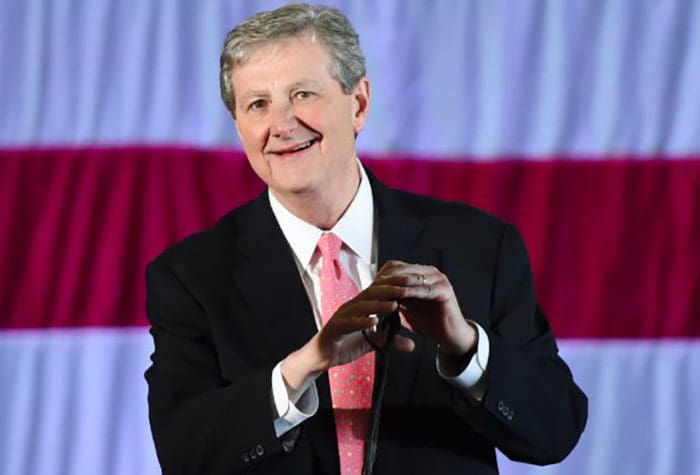A story in yesterday’s New York Times by Adam Rappeport was titled, Banks Tried to Curb Gun Sales. Now Republicans Are Trying to Stop Them. They say that like it’s a bad thing.
It seems that some members of Congress are taking an appropriately dim view of financial services giants — companies that benefitted from tens or even hundreds of billions of dollars in US taxpayer-paid bailouts and loan guarantees in recent memory — that have decided to dictate gun control policy for their customers.
“If you’re going to turn us into a nation of red banks and blue banks, you’re making a mistake,” Senator John Kennedy, a Louisiana Republican and member of the banking committee, said in a recent interview before the latest shooting. “Don’t come crying to us when you screw up and you want the American taxpayer to bail you out.”
We appreciate Sen. Kennedy’s sentiments, but as history has shown, in a crisis, money center banks like Citibank and Bank of America are always considered too big to fail.
Their newly instituted policies are examples of non-governmental efforts to reconstitute the Obama administration’s Operation Choke Point. And they’re being egged on by anti-gun politicians in both state and federal government.
Some pro-gun Republicans are trying to push back against restrictive polices.
Senator Michael D. Crapo, the Idaho Republican who heads the banking committee, sent blistering letters in late April to the top executives at Citigroup and Bank of America, accusing them of using their market power to manage social policy. He told them not to go any further and warned them against developing ways to monitor gun transactions through their payments systems, a move that gun advocates view as a dangerous step toward using data to block law-abiding customers from buying guns.
“I am concerned when government agencies use their power to try to cut off financial services for lawful businesses they may disfavor,” Mr. Crapo wrote to Michael Corbat, Citigroup’s chief executive. “I am also concerned when large national banks use their market power for similar purposes.”
Meanwhile, legislators aren’t getting much help from the regulatory agencies with oversight authority over the banks.
During congressional hearings this spring, Mick Mulvaney, the acting director of the Consumer Financial Protection Bureau, and Randal K. Quarles, vice chairman of supervision at the Federal Reserve, faced questions from Republican lawmakers about whether regulators could intervene.
Mr. Quarles indicated that the issue was outside of the scope of the Fed’s mandate. Mr. Mulvaney said that what the banks were doing to the gun industry was “troubling,” but that he did not think it was his agency’s role to intercede.
And some say they’re reluctant to tell highly regulated financial institutions how to do business.
“I’m still thinking through this, because I generally don’t like to tell businesses how to conduct their business,” said Senator Patrick J. Toomey, Republican of Pennsylvania. “But it is certainly problematic if it were to be the case that the major banks that provide the infrastructure for so much of our financial services decided that they were going to practically shut down a perfectly legal industry.”
In the mean time, more firearms retailers and manufacturers are reporting to TTAG that they’re having increasing difficulty processing credit card transactions, getting financing, or even insuring their businesses. The coordinated demonization, isolation and harassment of public and private businesses that produce and sell legal products to law-abiding, background-checked Americans continues apace.
